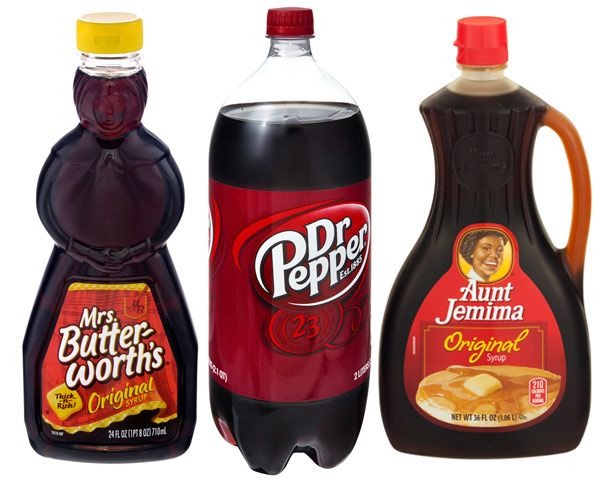Famous Fake Food Figureheads
There are plenty of brands out there that are named after real people, who once lived real lives and, in many cases, actually invented the product that's named after them. Look at Chef Boyardee, for example. Hector Boiardi ran a popular Italian restaurant in Cleveland in the 1920s, and his recipes were so popular that people convinced him to mass-market them. So he changed his last name's spelling to make it easier to pronounce, slapped it on a can, and boom, Chef Boyardee was born. But not all brands involving a person's name have origins that are so cut and dry. In several cases it's not clear whether the namesake ever actually lived, and in many cases the person the brand is named after never existed at all.
So why would a brand name itself after someone completely fictitious? In some cases, the name simply sounds good. Doesn't pancake syrup called Mrs. Butterworth's just sound delicious? In other cases, they were created by advertising agencies to give a friendly face to a faceless company. Others, like Mr. Coffee, well, we don't think they were trying to fool anyone with that one.
The most interesting brand names based on fictitious people, by far, are those that were devised with the express purpose of playing up the concept of "idealized domesticity," which was a big marketing trend around the turn of the 20th century. When inventor Chris L. Rutt wanted to sell his pancake flour, he went for the stereotypical "mammy" archetype and took the name "Aunt Jemima" from a popular minstrel song. They even hired a former slave, Nancy Green, to be the first spokesperson. Another example of this trend (while not a brand name) is Cream of Wheat's African-American mascot Rastus, who graced boxes of the stuff, wearing his chef's whites, from the 1890s until the 1920s. And Uncle Ben's rice is still very cagey on whether Uncle Ben actually ever existed.
So the next time you're in the supermarket and see a brand that you think might be named after someone, don't automatically assume it is. While it might seem like that smiling face on the box must be that of the inventor, don't forget that the concept of idealized domesticity is still very powerful in the marketing world, and there are plenty of products that are still playing it up, albeit in a slightly more politically correct way.
Click here to learn about eight food and drink brands that were named after eight completely fictional people, ranked according to the legendary status of their mythical namesakes. And if you're interested in learning about the real people behind 17 famous food brands, you can find that right here.
Dan Myers is the Eat/Dine Editor at The Daily Meal. Follow him on Twitter @sirmyers.
